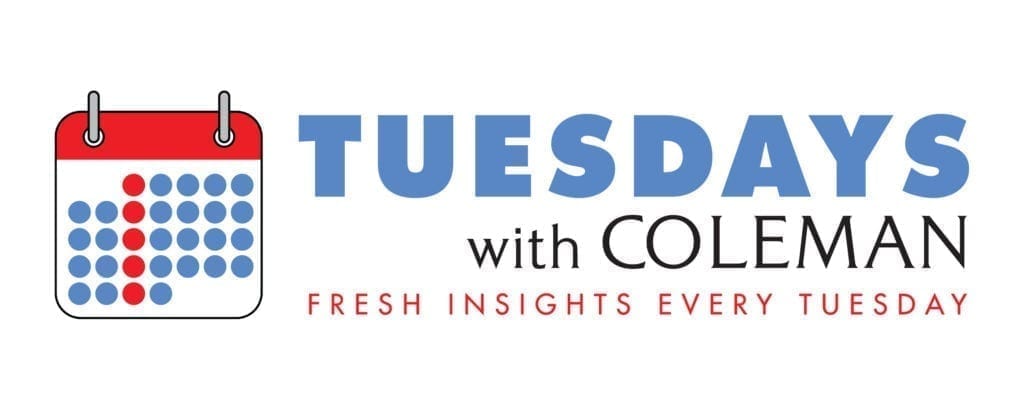
Do you consider yourself intelligent, imaginative or creative? Is creativity important in how you manage, develop or execute your audio product or offerings? The answer is obviously yes, but have you considered what creativity means and how to maximize yours and your organization’s creativity?
Here’s how Scott Barry Kaufman, author of Transcend: The New Science of Self-Actualization defined each trait when he appeared on Sam Harris’s Making Sense podcast.
“Intelligence is the ability to apprehend and perceive what is.”
“Imagination is the ability to perceive what could be.”
“Creativity is the combination of both intelligence and imagination.”
What does Kaufman mean by the ability to “apprehend and perceive the world as it is”? In business he means that a person understands their product, the competition and their consumers.
Some people are good at apprehending and perceiving the world as it is. They understand how consumers perceive and use their product and how it fits in the consumer’s life.
In this context an intelligent person is one who:
- Knows how consumers use their product or show.
- Knows when they listen, how long they listen, where they listen.
- Knows how their product is perceived by consumers.
- Understands the value the consumers get from the product.
- Grasps fully the emotions the product or show evokes.
Kaufman’s second trait is imagination. Imaginative people can envision what a product could be, not just what it is currently. Within this context the imaginative person is one who:
- Dreams about things that will engage or entertain the audience.
- Conjures new ways for consumers to use their product.
- Comes up with novel ways of competing with similar products.
- Invents product enhancements or improvements that make it more appealing and more competitive.
According to Kaufman, the most effective and unique solutions are creative ones, and creativity requires both “intelligence” and “imagination”. This makes creativity really useful and actionable, not just pie-in-the-sky dreaming. The most actionably creative people understand the true nature of the world and don’t impose prior beliefs or biases and can imagine what could be. Imagination becomes creativity only when it is grounded in “what is”.

Psychologist Scott Barry Kaufman explains that creativity is a combination of both intelligence and imagination.
Contrast actionably creative people with dreamers. Dreamers can come up with clever ideas, or fun games, or off the wall ideas, but often these things don’t impact the audience because they ignore basic facts about how consumers use or relate to their product. Great audio brands need talent with intelligence and imagination. When you have one without the other, you’re throwing darts blindfolded.
For example, let’s say you have an imaginative program host. But if he or she does not know how long people can or will listen to their show and/or the fact that listeners are not hanging on their every word, they often talk about things that are hard to follow or comprehend. Breaks may be just too long for the average listener. The dreamer may think it’s compelling, but if it fails by not knowing how people listen, its cleverness will rarely save it.
A talk show host can offend their audience when they don’t appreciate how their show is perceived. For example, a show perceived as serious and credible can’t suddenly start doing silly bits. A show known for fun, light interviews can’t just start grilling guests with provocative questions. This show may violate the unwritten brand pact they have with the audience.
Imaginative program directors sometimes have trouble realizing how little the audience knows about their station and how hard it is to sell any idea. This may result in them constantly “creating something new” or changing their positioning liners too often, assuming the audience is bored with them. They can design highly imaginative and seemingly compelling contests that require too much effort to play. All because they don’t understand how people use their station.
Advertising and marketing executives may come up with product promotion ideas that are hilarious but completely go over the head of their audience because their imaginative idea is not grounded in audience perceptions.
Thus, the things you do on your station or in your show that are based on intelligence with imagination poured in are more likely to have a positive impact. The most creative people have a firm grasp on their world and their problem. People who think they are creative are really only imaginative if they fail or refuse to understand “the world that is”.
So, for audio entertainment we need to call on both. Utilizing research is one part of the apprehending and perceiving what is. Other techniques include being observant, listening and paying attention. Removing your biases and preconceived notions.
When you look for creative people–and you should always look for creative people–ensure you’re prioritizing cognitive and emotional intelligence along with imagination. By doing this, you won’t just find imaginative ones–you’ll find strategic thinkers who understand how to actionably turn their creativity into results.
